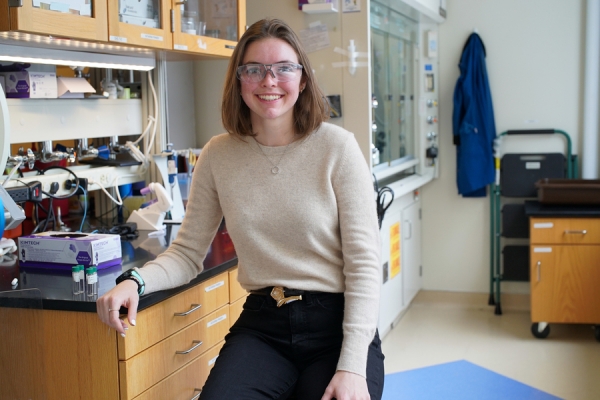As plastic pollution continues to mount, with growing risks to ecosystems and wildlife, manufacturers are beginning to make ambitious commitments to keep new plastics out of the environment. A growing number have signed onto the U.S. Plastics Pact, which pledges to make 100 percent of plastic packaging reusable, recyclable, or compostable, and to see 50 percent of it effectively recycled or composted, by 2025.
But for companies that make large numbers of small, disposable plastics, these pocket-sized objects are a major barrier to realizing their recycling goals.
“Think about items like your toothbrush, your travel-size toothpaste tubes, your travel-size shampoo bottles,” says Alexis Hocken, a second-year PhD student in the MIT Department of Chemical Engineering. “They end up actually slipping through the cracks of current recycling infrastructure. So you might put them in your recycling bin at home, they might make it all the way to the sorting facility, but when it comes down to actually sorting them, they never make it into a recycled plastic bale at the very end of the line.”
Read more at Massachusetts Institute of Technology
Image: Alexis Hocken is an MIT PhD candidate in chemical engineering, working in the lab of Brad Olsen. Credits: Melanie Gonick, MIT


